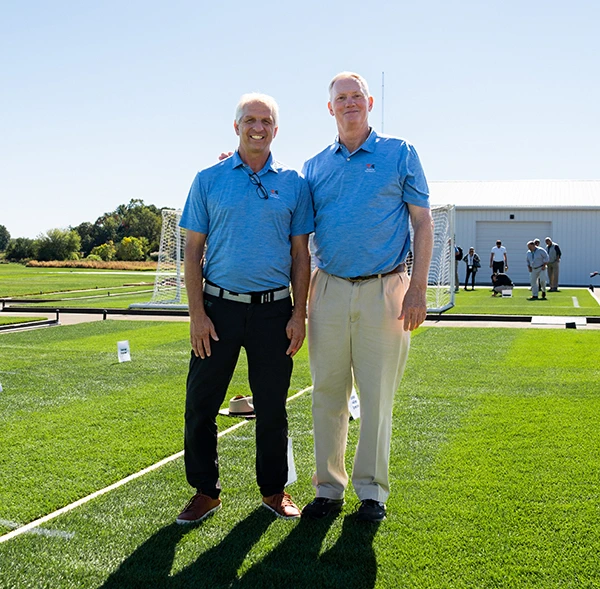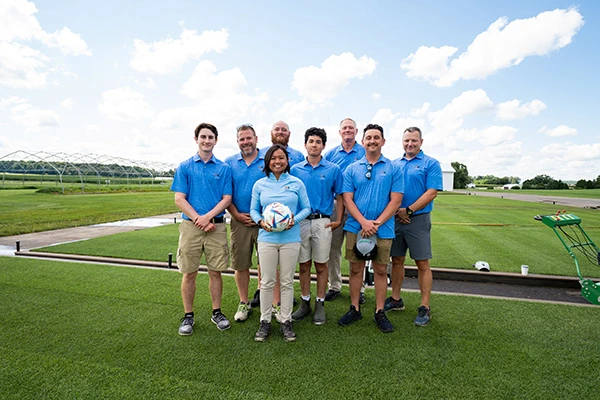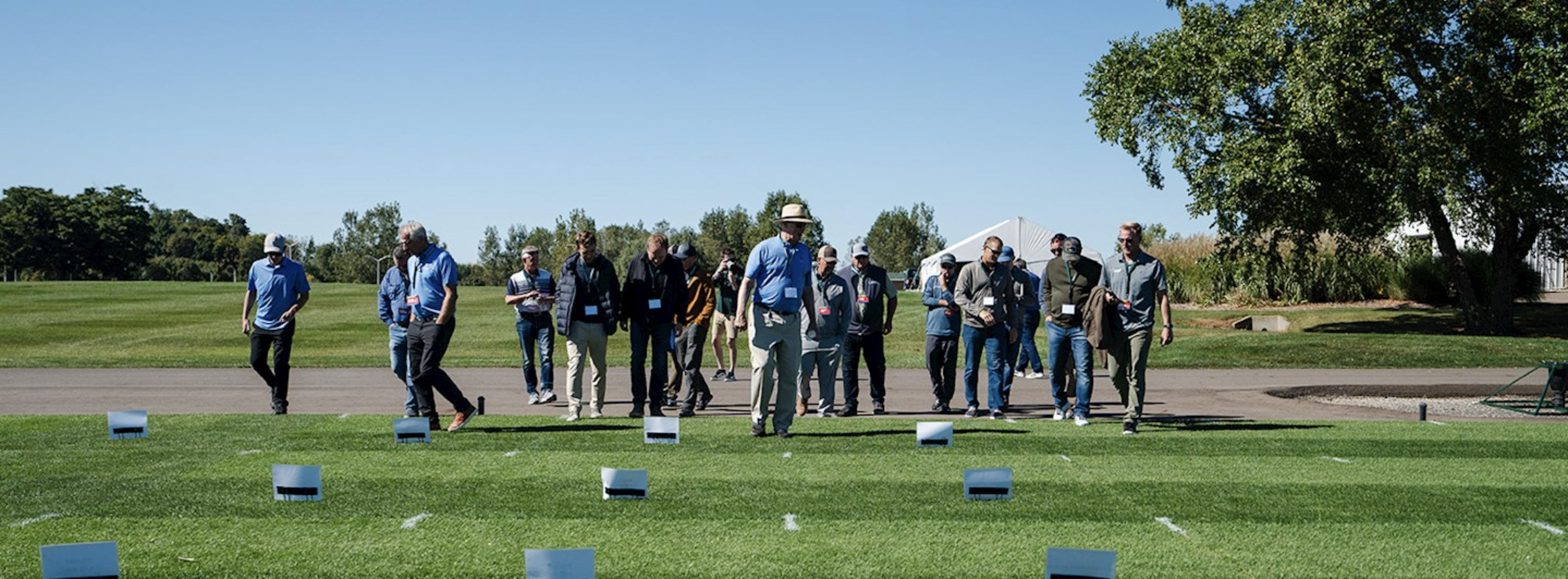In 2026, Michigan State University will play a major role in one of the biggest sporting events in the world by teaming up with The Fédération Internationale de Football Association, or FIFA.
MSU’s internationally recognized turf grass management program has received a second invitation from the FIFA to provide playing surfaces for the FIFA World Cup 26.
On Oct. 2, MSU hosted a field day along with FIFA and partners from the University of Tennessee for stadium managers and sod farmers who will oversee installing, removing and transporting the natural turf grass for the 2026 games.
Guests were able to see the turf grass that is currently being grown and how the natural surface is being tested using the foot lower extremities or fLEX machine that mimics the rigors of gameplay using a cleat to ensure it meets FIFA’s industry standards for field consistency.
With the grant funding investment from FIFA, the challenge for turf teams at MSU and the University of Tennessee involves developing effective and consistent fields for competitive play across three host countries — North America, Canada and Mexico — in over 16 cities with diverse climates for 104 games.

“The fact that MSU’s turf grass program was asked to participate and was selected for a second time shows our expertise and leadership in this field,” said John “Trey” Rogers III, a professor of turf grass research in MSU’s College of Agriculture and Natural Resources. “FIFA’s research support for the 2026 World Cup will allow us develop and perfect temporary turf even further and to usher in an unbelievable era.”
Three decades ago, Rogers played a role in the 1994 FIFA World Cup when his team installed a temporary grass field at the Pontiac Silverdome for the first time. The challenge was to grow turf grass indoors that could be installed and removed from a venue. Rogers and his team showed that portable turf is possible — an innovation of its time that has now become common in the industry.
“We always felt the pressure of this project,” Rogers said. “Specifically, in carrying forward sports turf innovations.”
Today, Rogers has partnered with John Sorochan, a Distinguished Professor of Turf grass Science and Management at the University of Tennessee. Sorochan was a graduate student of Rogers’ and worked on the World Cup project in 1994. Now, Rogers and Sorochan are co-principal investigators for the 2026 competition.
For its part, MSU developed a cool season turf grass mixture comprised of Kentucky bluegrass and perennial ryegrass that can be grown in sand on plastic, making it easier to replicate at sod farms across North America.
For Dave Betts, a co-owner with Tuckahoe Turf Farms in South Jersey who will be installing and removing the turf grass for the New York, Boston and Philadelphia matches, this field day provided an opportunity to learn from the researchers growing the turf grass and see and feel it for himself ahead of the FIFA World Cup 26 games.
“This was really impressive to see the turf grass, learn about how it is reinforced and to see the drainage system for myself,” said Betts. “I also learned a lot about the research that went into how the turf grass was grown and tested.”

The experience of growing turf grass for the FIFA World Cup 26 also provides a unique opportunity for past and current students and technicians. Ryan Bearss, Jackie Guevara, Jake Kilby and Evan Rogers are all part of MSU’s turf grass program, and the experience of participating in this project will stay with them forever.
“The work done from 1992 to 1994 led to 30 years of innovation and adoption by the turf grass science industry,” said Brian Horgan, professor and chair of the MSU Department of Plant, Soil and Microbial Sciences. Horgan was also an undergraduate student of Rogers’ during that time and worked on the first FIFA project. “It was an important experience in my career,” Horgan said. “I still talk about it.”
Listen to Trey and John talk about their experiences growing turf grass for the World Cup in 1994 and for 2026 with Russ White on the MSUToday podcast.
This story was originally published on MSUToday.
Is your business interested in working with MSU’s turfgrass experts? Click Here.
About the MSU Innovation Center:
The MSU Innovation Center combines research partnerships, technology transfer, and startup support for MSU faculty who aim to see their research applied to make the world a better place.
Composed of Business Connect, MSU Technologies, and Spartan Innovations, the MSU Innovation Center aims to amplify the impact of faculty research and drive economic growth while positively impacting society to solve real-world challenges with cutting-edge ideas.
Through mutually beneficial, long-term partnerships with the private sector, we connect MSU faculty with companies for corporate-sponsored research collaborations. We also play a key role in facilitating the commercialization and public use of technologies and copyrightable materials, moving MSU’s innovations from the lab to the marketplace. Importantly, we provide significant support for faculty entrepreneurs in establishing startup companies based on technologies developed at MSU.


